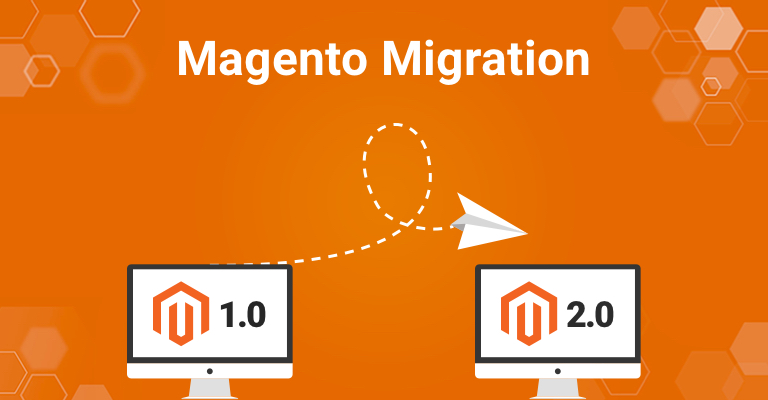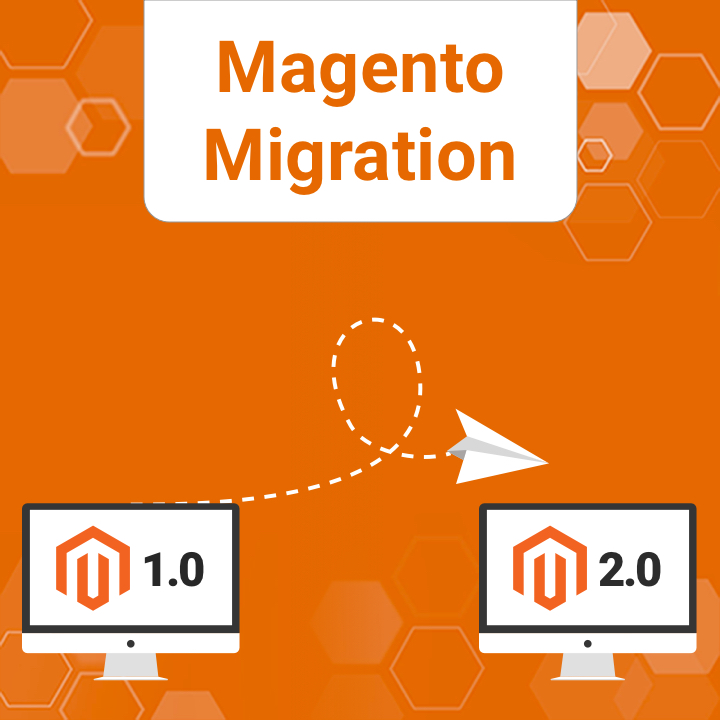Magento version 2.0 was released at the end of 2015, and since then there has been speculations that Magento will seize support for Magento version 1.0. What’s evolved? Whether you should plan a move? What are the things to consider while migrating?
These are the few questions which are currently running into ecommerce business owners.
The release of Magento 2.2 has made is almost essential to migrate from Magento 1 to Magento 2. The new version provides better performance, improved security, and improved customer experience.
Migration from Magento 1 to Magento 2 is more of a necessity and less of an option for store owners. There were a few flaws in the Magento 1.0 which is now improved in new Magento 2.0 version.

The improved features and benefits of Magento 2.0 are:
- Faster than Magento 1.0.
- Better UI and UX.
- Inbuilt cache and support.
- Magento 2 supports steps to deal with the server validation.
Magento 2 movement can take a great deal of time and exertion since this procedure is extremely unpredictable and incorporate several customizations. Therefore doing it all alone can be difficult and the possibility of disappointment is high. It is prescribed to pick a decent Magento specialist to do the migration. The following are the components that are needed to be considered for Magento 2 migration:
1) Theme Migration
Magento 2 theme migration is not possible. However to make sure that your website’s design template remains the same as it was earlier you have to recreate your theme on Magento 2 to get your old design, remade by Magento 2 developers. Alternately, you can redesign your whole store. You can hire a Magento web development company and give your storefront a designed more appealing look.
2) Code Migration
A large portion of the custom codes on Magento 1 are compatible with Magento 2 also. There are many tools accessible for Magento 2 code migration, however it requires specialized and technical knowledge to migrate the codes effectively.
3) Extension Migration
Extension migration while you move up to Magento 2 could require some effort. Extensions which you were using can be of third party and can be used extremely or less which needs some enhancement. Code Migration Toolkit can help you with migrating extensions.
You must recreate older version extension and themes in your new Magento 2 store. In case of any problem in accessing a new version of extensions, you can consult with the developer of the Magento 2 extension.
4) Data Migration
Magento 2 data migration is a crucial step. It requires a broad amount of work and great learning of Magento 2 Database Migration. The client information and store data are imperative for any organization and losing it can cost it its business. This procedure is somewhat complicated and needs skilled developers to get it done. This procedure can take 2 to 5 working days.
Magento 2 Data Migration Tool is Magento tool to help you import product and customer data to the Magento version 2.0. This tool uses map files to convert data to your Magento store, verifying consistency between database structures of both the versions.
5) Importing Media Files
Migrating media file is different as compared to product data migration. The media files needs to be migrated manually.
6) Performance Considerations
There are chances that the migration procedure may not work flawlessly, in spite of appropriate arranging and usage. Expect running into some irregular error messages. The movement procedure doesn’t generally run smooth and getting a couple of errors is normal; simply connect with a specific Magento designer to repair things.
7) Continuous Maintenance and Site Security
Another factor to consider when arranging your site migration to Magento 2 is your long haul design. By what means will you deal with upkeep and updates for your Magento site? What sorts of overhauls and security patches are discharged to shield your site from vulnerabilities?
Working with a Magento developers will guarantee that you are kept up to speed with the most current forms of Magento, alongside security patches to settle bugs and vulnerabilities.
8) Figuring out How the Magento 2 Platform Works
Changing from your current eCommerce site to the Magento 2 stage implies you’ll have to set aside the opportunity to comprehend not just the Magento 2 backend, but additionally how it will work for your customer.
Having a demo site test and learn on before your new Magento 2 site is launched. This will enable you to see how the framework functions, and how you can best use it for your business and your customers. On the off chance that you are working with a Magento developers for your site migration, inquire as to whether they have a demo form of your site for you to acclimate yourself with. Also ask in the event that they offer Magento training to pick up a thorough knowledge of the framework.
9) DNS Change
At the point when your new Magento 2 site is prepared to end up your live site, you’ll have to work with your development company to change the DNS records so they point to your new site. This implies when clients go to your area, they’ll see your Magento 2 site.
10) Ongoing Maintenance and Site Security
Another factor to consider is how you will handle maintenance and updates for your Magento site. Different kinds of upgrades and security changes released to protect your site.
Working with a Magento development companies will guarantee that you are kept up to speed with the most up to date forms of Magento that are discharged, alongside security patches to settle bugs and vulnerabilities.
Conclusion
This post clarifies every means that are required for migrating Magento 1 store to Magento 2 store. For example, better support is as yet required customization and theme migration. Also, be prepared to perform a lot of manual work while migrating your Magento 1 store to Magento 2. However, for a flawless migration I will still recommend to consider Magento Professionals.
Author Bio:
Ronak Meghani is a serial entrepreneur and who has worked with small-medium-large companies. He is having an 8+ Years of expertise and closely working with eCommerce ventures since 2009. He is a Co-Founder of Magneto IT Solutions, a full service of Magento custom development in the USA, India and Bahrain. He’s enthusiastic about fitness, start-ups, entrepreneurship, and all things marketing.

